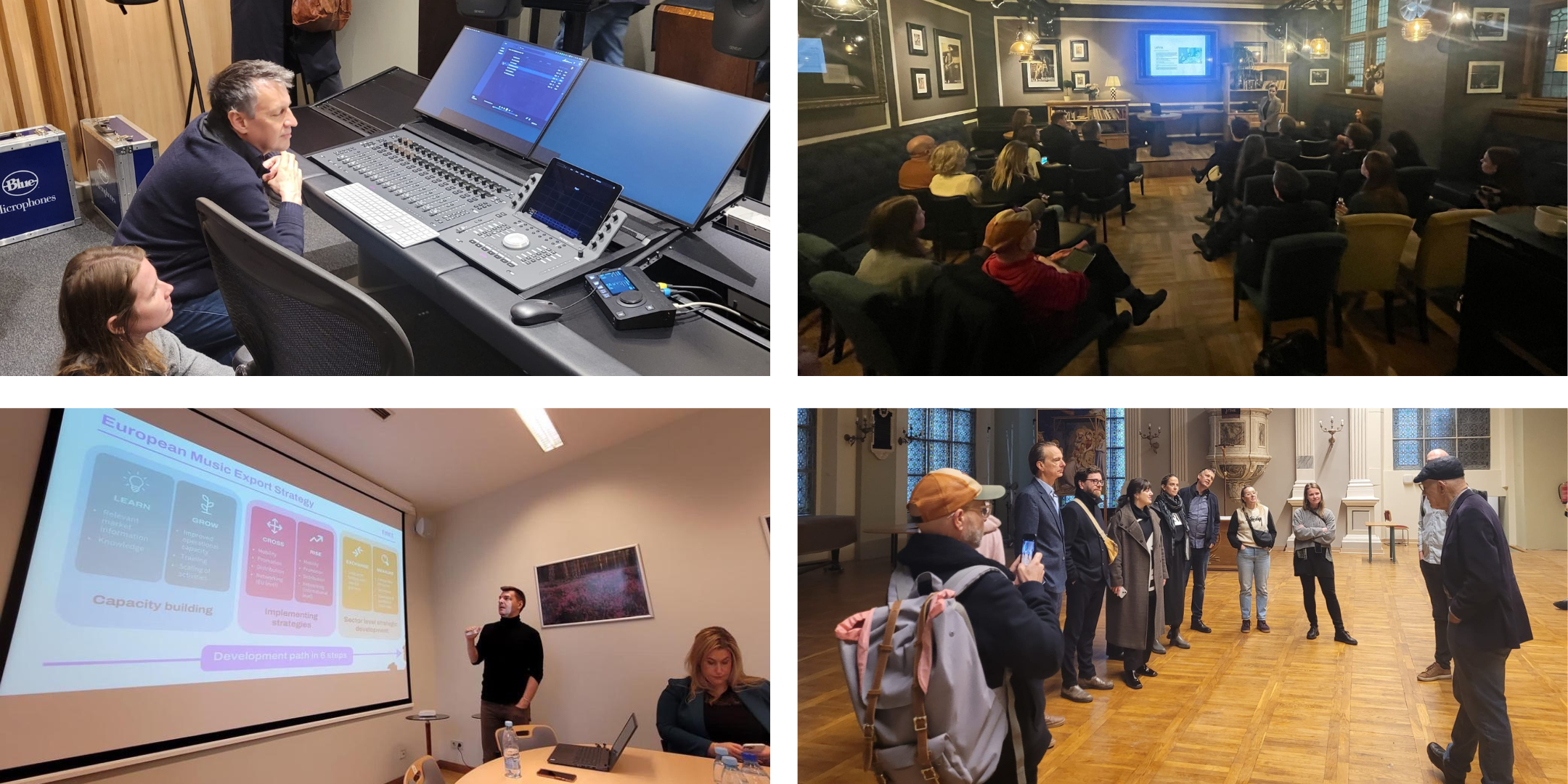OVERVIEW: EMEE Networking Mission to Riga

Read the EMEE Market Profile for Latvia
As part of our ongoing DEMEC project, this month EMEE members participated in a networking mission to Riga, Latvia where they were able to learn more about the local music ecosystem and meet key industry figures. Becci Scotcher from the PRS Foundation gives us a quick overview of the activities during the event:
Can you give us a quick overview of the activities?
Our Riga mission began on November 6th at the ‘House of the European Union’ with a presentation of the latest EMEE study by Virgo Sillamaa, an expert in music policy and ecosystems and Head of Research for EMEE, titled ‘Developing Music Export in Europe‘ was presented to representatives from the Ministry of Culture, the Ministry of Economics, and representatives of the Latvian music industry.
In a cool and expansive venue based in the centre of Riga, Rockcafe (Latvijas Pirmā Rokkafejnīca, Mārstaļu Street 2-4), we were based for 1.5 days of presentations and networking.The CEO of Music Export Latvia, Agnese Cimuska-Rekke, invited festivals, promoters, venues, publishers, technology companies to present. Including:
- Collective Management Organisations (CMOs): LaIPA
- Publishing: MicRec Publishing
- Venues: M/Darbnica
- Latvian Audio Technology Manufacturers: Blue, Neatmic, Erica Synths, Klavins Pianos, Game Changer Audio, Sonarworks.
Guna Zučika, board member of the Latvian Music Export Office and CEO of Every Little thing, gave us a comprehensive overview of the Latvian Music Market as well. We also visited the legendary Riga Reformed Church Recording Studio – quite the experience!
What were your key takeaways from the trip?
Latvia is a really interesting marketplace, with the industry keen to collaborate. It’s an actively growing market. Many of the businesses in Latvia are ‘one man bands’ meaning artists self-release their own music, book their own shows and manage most things themselves or with only one team member.
Pop and Rock are the top two genres of recorded music that audiences listen to, however Hip Hop is a growing trend in Latvia with big festival such as Positivus, which used to be an indie music festival, now dominated by Hip Hop. Also of interest, audiences are more inclined to respond well to songs sung in Latvian verses English.
There are no Spotify-curated editorial playlists in Latvia or the Baltic region, however the younger generation do tend to consume music digitally main via YouTube.
There are two collective management organisations (CMOs) in Latvia: AKKA/LAA for authors’ rights and LaIPA for neighbouring rights and the collection of these rights. Music publishing is the least developed sector in Latvia.
There are some really cool and interesting music technology companies in Latvia, who are creating innovative products such as Erica Synths, who are one of the largest modular synthesizer manufacturers in the world and one of the largest synthesizer manufacturers in Europe.
Any main tips for getting into Latvia as a market?
Working with a local label is not really necessary for international artists, it’s better to focus on finding one local person who can help you with setting up radio interviews, translating and sending out press releases, and inviting relevant people from the industry to your shows.
Audiences discover music through streaming services and radio, and artists should ensure they have a presence on Facebook, Instagram and You Tube.
When looking to book a show or festival in Latvia, artists and their teams should approach festival bookers with numbers, stats and measurable data that prove that they have an audience in Latvia or in the Baltics, either on social media or through streaming. Artists will need to return regularly to Latvia to build up their audiences, so your planning needs to be long term and sustained.
Make sure to reach your to your embassy or cultural representation offices, as they may be able to help with funding or promotion.
–
